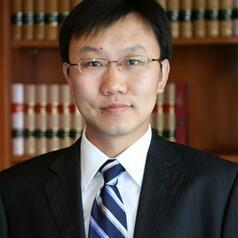
Ming Du
Ming Du is professor and director of the Centre for Chinese Law and Policy at Durham Law School.
His current research focuses on the theoretical and structural issues of global economic governance (trade, investment and finance), China's approach to international law, and the development of the rule of law in contemporary China. He also retains a strong interest in corporate law and cross-border business transactions in which he practiced as a qualified lawyer in both New York and Beijing for a number of years.
Less ![]()
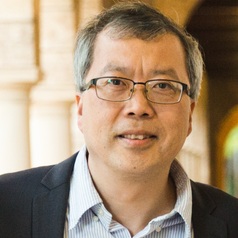
Ming Feng
Senior Principal Research Scientist, CSIRO
Dr. Ming Feng is a physical oceanographer from CSIRO and specialised in climate variability and biophysical research. He is a deputy leader of the Integrated Marine Observing System in Western Australia, implements the oceanography observing system to monitor ocean circulation and biogeochemical properties along the Western Australian coastline. Dr Feng is a lead researcher in the Leeuwin Current variability and biophysical processes off the coast of Western Australia. Recently, he has been active in the research areas of decadal climate variations and extreme warming events in the Indo-Pacific Oceans. He has also been involved in research on western rock lobster recruitment and biosecurity research in Western Australia.
Less ![]()

Ming Gao
Researcher, Monash University
Dr. Ming Gao is a scholar of modern East Asia.
His research interests concern the gendered dynamics of violence, emotions, women's history, and the history of the Japanese empire.
He now resides in Melbourne, Australia, and has previously studied and worked in Korea (Seoul), Japan (Fukuoka, Nagoya, Osaka, & Tokyo), Singapore, the United States (Los Angeles), and China.
He is proficient in English, Japanese (JLPT N1), Korean (TOPIK6), and Chinese.
Less ![]()
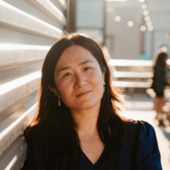
Ming Xie
Assistant Professor of Emergency Management and Public Health, University of Maryland, Baltimore County
Less ![]()
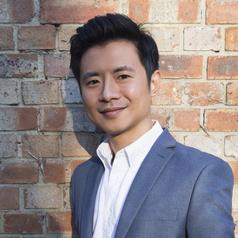
Ming-Hung Hsu
Senior Research Fellow, Music Therapy, Anglia Ruskin University
Since 2008, Ming has developed a music therapy service in care homes, winning the LaingBuisson Excellence in Dementia Care award. In 2019, the service featured in the BBC TV programme, Our Dementia Choir with Vicky McClure.
Ming’s research focuses on music therapy for managing neuropsychiatric symptoms of dementia. His research applies heart-rate analyses, cognitive theories and research findings of affective neuroscience in music therapy treatment.
Ming’s research interests are mainly within the field of senior and dementia care. By conducting mixed-methods research, Ming studies the role of music therapists in personalising dementia care and supporting caregivers. In addition, Ming is interested in using psychophysiological techniques such as heart rate analysis to investigate how melody, tempo and timbre facilitates targeted cognitive processes and emotion regulation.
Ming is currently working on the UK arm of the international trial study HOMESIDE, funded by Alzheimer’s Society.
Less ![]()
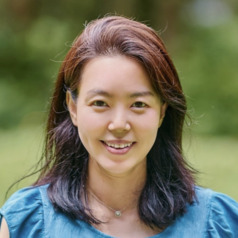
Minjeong Kim
Associate professor, UMass Lowell
My expertise includes the literacy and language development of children with diverse backgrounds, multicultural children's literature, and teacher education.
Education:
Ph.D.: Integrated Teaching and Learning, (2008), The Ohio State University - Columbus, OH
Supporting Area: Early Childhood Education and Literacy Studies
Dissertation/Thesis Title: Early literacy learning of young children with and without hearing loss: Written narrative development
MA: Special Education, (2002), Dankook University - Seoul, Korea
Supporting Area: Deaf and Communication Disorder Education
Dissertation/Thesis Title: Story grammar, writing strategies and text knowledge in hearing impaired children with different levels of writing proficiencies.
BA: Special Education (Specialty Area: Deaf Education), (2000), Dankook University - Seoul, Korea
Supporting Area: Specialty Area: Deaf Education
Selected Awards and Honors
AERA SIG Award (2006), Service, Community - American Educational Research Association Special Interest Group
College of Education Scholarship (2006), Scholarship/Research - The Ohio State University
Ray Travel Award (2006), Service, University - The Ohio State University
Teacher Training Award (2002) - Korea Institute for Special Education
Department Scholarship (2001) - Department of Education, Dankook University, Seoul, Korea
LG Global Challenger Award in Education and Art (1998) - LG Seoul, Korea
LG International Study Program Award (1998)
Selected Publications
Kim, M.J. (2006). "Conceptualizing early childhood literacy for literacy education of children with special needs," Korean Journal of Special Education, 41 183-214.
Kim, M.J. (2002). "Story grammar, writing strategies and text knowledge in hearing impaired children with different levels of writing proficiencies.," Korean Journal of Special Education, 37 143-170.
Selected Presentations
The States of Southeast Asian Communities in New England - The 2014 States of Southeast Asian American Studies, October 2014 - Minneapolis, MN
Finding a voice through storytelling, 2011 - New Orleans, LA.
Contextualization and de-contextualization of narrative practices in classroom, 2010 - Denver, CO
What counts as homeless context, 2010 - Columbus ,OH
What does context mean?, 2010 - Denver, CO
Narrative development of children with hearing loss as language socialization, 2009 - San Diego, CA
Pedagogies of possibility for critical consciousness, 2009
Discourse Analysis in Education Conference in Columbus - Discourse Analysis in Education Conference , 2008 - Ohio
Pedagogies of possibility for critical consciousness, 2008
Using and analyzing video data in ethnographic and cross-disciplinary studies of learning settings from multiple perspectives, 2008 - New York
- American Educational Research Association, 2007 - Chicago, IL
Children building on peers, 2007 - Chicago, IL
Understanding narrative development as intertextual practices, 2007 - Chicago, IL
Reconceptualizing genre development in preschool childrens' oral and written narratives, 2006 - San Francisco, CA
Social construction of intertextuality of deaf children during literacy events, 2006 - San Francisco, CA
Intertextuality and reading at an elementary level, 2005 - Pittsburg, PA
Reconceptualizing genre development in preschool children's written narratives, 2005 - Wisconsin
Social construction of gender through preschool children's oral storytelling events, 2005 - Montreal Canada
Selected Contracts, Fellowships, Grants and Sponsored Research
KF Korean Studies Workshop for Educators 2013 (2013), -
Kim, M.J. (Principal)
Min Kim (2010), Grant - The Korea Foundation
Kim, M. (Principal)
Min Kim (2010), - University of Massachusetts Lowell
Kim, M. (Principal)
KF Korean Studies Workshop for Education 2012 (2012), -
Kim, M.J. (Principal)
KF Korean Studies Workshop for Education (2011), -
Kim, M.J. (Principal)
KF Korean Studies Workshop for Education (2010), -
Kim, M.J. (Principal)
Min Kim (2009), Grant - Paguin Adams Grant
Kim, M. (Principal)
Min Kim (2009), Grant - Tewksbury Public Schools
Kim, M. (Co-Principal)
Min Kim (2009), Grant - University of Massachusetts Lowell
Kim, M.
Tewksbury and UML K-12 Literacy Instruction Partnership for Professional Development (2009), Grant - Massachusetts Department of Secondary and Elementary Education
Bifuh-Ambe, E. (Principal), Kim, M.J., Simmons, J.W.,
Min Kim (2008), Grant - City of Woburn
Kim, M.
Professional Development in Early Literacy (2009), -
Kim, M.J. (Principal)
Alumni Research Grant (), Grant - Ohio State University
Kim, M.
Graduate Student Conference Grant (), Grant - The Ohio State University
Kim, M.
Less ![]()
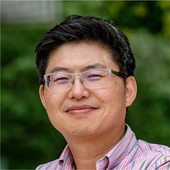
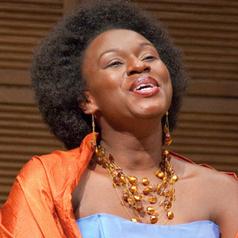
Minnita Daniel-Cox
Associate Professor of Music, University of Dayton
Dr. Minnita Daniel-Cox attended Bowling Green State University, where she received a Bachelor of Music in Music Performance, and the University of Michigan, where she earned her Masters of Music and her Doctorate of Musical Arts degrees.
In 2014, Dr. Daniel-Cox established the Dunbar Music Archive and has presented her research for the National Association of Teachers of Singing, the National Opera Association, College Music Society, Society for American Music, National Association for Music Education, International Society for Music Education, Song Collaborators Consortia, Ohio Music Education Association and the International Association of Sound and Audiovisual Archives.
She has performed Dunbar Archive repertoire recitals in venues across the United States including the University of Michigan, Bowling Green State University, University of Puget Sound, Ohio Northern University, Central Michigan University, Detroit Musicians Association, Taylor University and Hanover University with a recital tour in Stara Zagora, Haskovo and Plovdiv, Bulgaria.
Dr. Daniel-Cox has received over $350,000 in funding for her Dunbar work, including two National Endowment for the Humanities grants and a Mellon Foundation grant for the Dunbar Project.
Dr. Daniel-Cox is an active member of the African American Art Song Alliance, National Association of Negro Musicians, National Association of Teachers of Singing and is an alumna of the NATS Intern Program. She serves on the board of the NOA and is Co-Chair of the Inclusivity, Diversity, Equity and Access (IDEA) Initiative for the National Opera Association.
Dr. Daniel-Cox regularly appears with the Dayton Philharmonic Orchestra, the Springfield Symphony Orchestra, the Miami Valley Symphony Orchestra and the Bach Society of Dayton. Recently, she has performed the roles of Anna Gomez in Menotti’s The Consul and Sister Rose in Dead Man Walking with Dayton Opera. She is regularly featured in broadcasts with for WDPR Discover Classical.
She is currently the Associate Professor of Voice and Coordinator of the Voice Area at the University of Dayton, where she teaches applied lessons and music courses, serves as Artistic Director of the yearly musical/opera productions, coordinates the Dayton Opera Apprentice Program, and coordinates the Vocal Performance Institute, a summer program for high school-aged singers.
Less ![]()
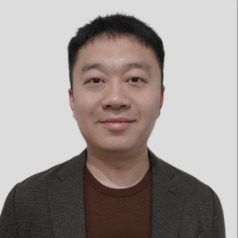
Minran Liu
Lecturer in International Relations, University of Sydney
Dr Minran Liu is a Lecturer in International Relations at the University of Sydney. He is concurrently a lecturer in International Political Studies at UNSW Canberra at the Australian Defence Force Academy (ADFA). He received his PhD in International Relations at the University of Sydney. His research interests span Chinese defence and foreign policy, Asia-Pacific security, the interplay between domestic and international spheres, Australia-China relations, and International Relations theory.
Less ![]()
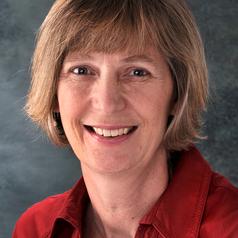
Minyon Avent
Antimicrobial Stewardship Pharmacist, The University of Queensland
Dr Minyon Avent is an Antimicrobial Stewardship pharmacist at the Queensland Statewide Antimicrobial Stewardship Program and a Consultant Clinical Research Pharmacist at The University of Queensland Centre. She has many years of experience in developing and implementing programmes for the appropriate use of antibiotics in tertiary health care institutions, rural and regional areas as well as the general practice setting. Her research interests are the optimisation of antibiotics.
Less ![]()
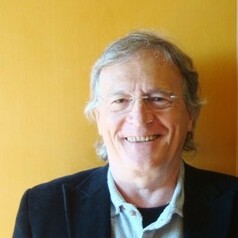
Miquel Serra Raventós
Catedràtic j. de Psicologia Cognitiva y experto senior de la Comisión de Bioètica, Universitat de Barcelona
Less ![]()

Mira Hussein
Research Fellow at the Alwaleed Centre for the Study of Islam in the Contemporary World, University of Edinburgh
Less ![]()

Mira Sucharov
Professor of Political Science, Carleton University
Dr. Mira Sucharov is Professor of Political Science. She holds a PhD in Government from Georgetown University, an MA in Political Science from the University of Toronto, and a BA in Middle East Studies from McGill University. She is the author of Borders and Belonging: A Memoir (Palgrave Macmillan, 2021), Public Influence: A Guide to Op-Ed Writing and Social Media Engagement (University of Toronto Press, 2019), and The International Self: Psychoanalysis and the Search for Israeli-Palestinian Peace (SUNY Press, 2005). She is co-editor (with Aaron J. Hahn Tapper) of Social Justice and Israel/Palestine: Foundational & Contemporary Debates (University of Toronto Press, 2019), and (with Eric Van Rythoven) Methodology and Emotion in International Relations: Parsing the Passions (Routledge, 2019). She is currently writing a dual travel-memoir with Omar M. Dajani on space, place and emotion in Israel/Palestine, and they are developing a podcast on the past and future of Jaffa, called “The Vacant Lot.”
Her many op-ed pieces have appeared in Haaretz, The Forward, The Globe and Mail, The Toronto Star, JTA, Jewish Currents, The Ottawa Citizen, The Daily Beast and Huffington Post. She is also a frequent media commentator, having appeared on CBC, CTV, Global News, Agence-France Press, and NPR affiliate KDNK; and having been quoted in Vox, The New York Times, Buzzfeed, The Globe and Mail, The National Post and Al Jazeera. In 2019, she won the Faculty of Public Affairs award for Excellence in Public Commentary.
Dr. Sucharov is a nine-time teaching award winner, including having won the highest university teaching award in Ontario. At Carleton, she has developed courses in Israeli-Palestinian relations, op-ed writing and social media engagement, graphic novels and political identity, and Netflix and politics.
She is the founding co-chair of the Jewish Politics Division at the Association for Jewish Studies, and is immediate past co-editor of AJS Perspectives.
Less ![]()
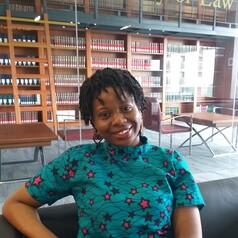
Miracle Chinwenmeri Uche
Lecturer in Law, University of Westminster
PhD (International Criminal Law)-University of Essex
LLB-Girne American University Cyprus
LLM (Public International Law)-Leiden University, The Netherlands
Diploma in Contemporary Challenges to International Human Rights Law-Abo Akademi University, Finland
Less ![]()
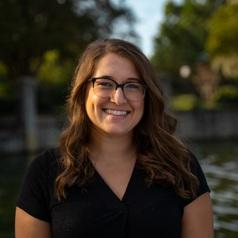
Miranda Dziobak
Instructor in Public Health, College of Charleston
Since 2018, I have been studying chemical exposures in bottlenose dolphins. Recently, I have been interested in exploring microplastic pollution in dolphins and their preferred prey.
Less ![]()

Miranda Kitterlin-Lynch
Associate Professor, Coca-Cola Endowed Professor, Florida International University
Dr. Miranda Kitterlin-Lynch is an Associate Professor in the Chaplin School of Hospitality and Tourism Management at Florida International University. She received her doctoral degree in Hospitality Administration from the University of Nevada, Las Vegas. She is a Past President of the SECSA Federation of the International Council on Hotel, Restaurant and Institutional Education (ICHRIE), the current ICHRIE Director of Member Services and Development, Chair of Membership for the International Society of Travel and Tourism Educators (ISTTE), as well as the Associate Editor for the International Hospitality Review. In 2017, Dr. Kitterlin-Lynch received the FIU Faculty Senate Award for Excellence in Teaching. Dr. Kitterlin-Lynch is a Coca Cola Endowed Professor, the recipient of international and domestic Best Paper awards, and has published over 100 peer-reviewed articles, conference proceedings, and trade/industry publications. She has also edited a textbook in her area of specialty, and given a number of media interviews.
Less ![]()
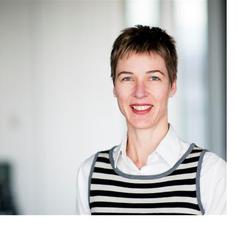
Miranda Stewart
Miranda Stewart is a Professor and Director of the Tax and Transfer Policy Institute at Crawford School of Public Policy, The ANU. She is also a Professor at Melbourne Law School, University of Melbourne. Her numerous edited or coauthored books include Not-for-Profit Law (2014, with O'Connell and Harding, Cambridge U Press); Tax, Law and Economic Development (2013, with Brauner, Edward Elgar); Housing and Tax Policy (2010: Australian Tax Research Foundation) and Death and Taxes (2014, with Flynn, Thomson). Miranda was a consultant to the Henry Tax Review on housing and has authored many articles in national and international academic journals. She is currently researching tax in a global economy and institutions of tax reform.
Less ![]()
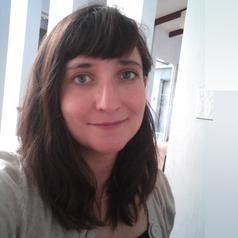
Miranda Sheild Johansson
Senior Research Fellow in Social Anthropology, UCL
I am a social anthropologist specialising in the dynamics of fiscal systems and the sociality of tax, with a particular emphasis on the Andean region, where I have undertaken long-term fieldwork in a rural Quechua-speaking community, as well as in the peri-urban zones of Cochabamba city. In 2022 I commenced my UKRI Future Leaders Fellowship project, ‘The Sociality of Tax: A Multiperspective Study of Fiscal Relations (SocTax)’. The project investigates fiscal regimes and cultures in an anthropological fashion comparing Bolivia, the UK, and Sweden, and exploring the types of social relations that paying and not paying tax produce in different ethnographic settings. I'm a member of the Anthropology of Tax network (tax-anthro.net), founder and convenor of EASA's Anthropology of Tax Network, and affiliate of UCL's Centre for Capitalism.
I am also a member of the ERC-funded project 'Anthropologies of Extortion', working as part of an international groups of scholars to map and analyse cultures of extortion. In 2017 I was awarded the Leverhulme Early Career Fellowship for my project 'Becoming a Taxpayer: Fiscal Expansion and Economic Subjectivities in Bolivia'. Before that I worked as a Teaching Fellow in the Anthropology department at UCL 2016/17. I received my Ph.D. in Anthropology from the London School of Economics (ESRC-funded) in 2014, MSc (Research) from London School of Economics (ESRC-funded) in 2007, and MA (hons) in Social Anthropology from the University of Edinburgh in 2005.
Less ![]()
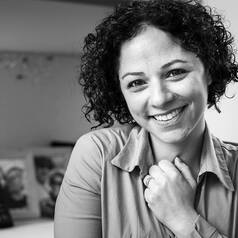
Mireille Rebeiz
Chair of Middle East Studies & Associate Professor of Francophone & Women's, Gender & Sexuality Studies, Dickinson College
I received my doctorate in Francophone Studies from Florida State University in 2012. I have a master’s degree in International Law and Human Rights from Université de Rouen in France, and a bachelor’s degree in law from Saint Joseph University in Lebanon. My teaching and research focus on the intersectionality of law, gender, sexuality, oral history, and trauma in the context of armed conflicts with a focus on the Middle East and North Africa. My first book, "Gendering Civil War. Francophone Women’s Writing in Lebanon", for which I earned the AAUW American Fellowship, appeared with Edinburgh University Press in 2022. Nominated for the John Leonard Prize, this book examines French-language narratives published between the 1970s and the present day by Lebanese women authors writing on the Lebanese civil war of 1975-1991. My second book examines Hezbollah’s unlawful activities in Lebanon since 1982, and the manuscript is currently under consideration. My most recent research project focuses on the Beirut barracks bombing of 1983 that killed 241 American servicemembers and 58 French parachutists. In this project, I explore gaps in Lebanese, French, and American histories and writes veterans’ oral stories. In addition to my books, I published several peer reviewed articles in French and English in national and international journals. I am also finishing a second doctorate in international law and terrorism at Penn State Dickinson Law.
Less ![]()
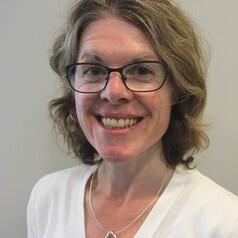
Mirella Dottori
Professor, University of Wollongong
Mirella Dottori is Professor within the School of Medical, Indigenous and Health Sciences, University of Wollongong (UOW). Her research combines technologies in human pluripotent stem cell biology, neuroscience and bioengineering to develop cellular models of the human nervous system. Her roles also include Chair of UOW Health and Medical Human Ethics Research Committee and member of Australian Research Council College of Experts.
Less ![]()

Miren Gutiérrez
Investigadora, activismo de datos, Universidad de Deusto
Investigadora Principal del programa ARES (Analysing Antifeminist Resistances). Doctora en Comunicación, especialista en activismo de datos. Licenciada en Lingüística, Máster en Comunicación. Research Associate at the Overseas Development Institute (Londres)
Less ![]()
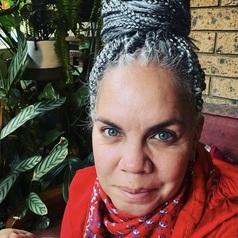
Miri (Margaret) Raven
Senior Scientia Lecturer (Research), UNSW Sydney
Miri is a Noongar
-Yamatji and non-Indigenous woman from Western Australia.
She's a Senior Scientia Lecturer (Research Only) at UNSW Australia with the Social Policy Research Centre, and the Environment & Society Group in the Faculty of Arts and Social Sciences.
She is also a Chief Investigator with Daniel Robinson on the 5-year Australian Research Council Discovery Project 'Indigenous knowledge futures: protecting and promoting indigenous knowledge' (DP180100507).
Miri holds a PhD from Murdoch University's School of Governance that focused on the use of protocols to protect Indigenous knowledge.
Miri is a geographer with research interests related to protocols, biodiversity conservation and Indigenous knowledge, organisational forms and practices, food security/justice, and Indigenous and human rights. She has over 20 years’ experience working on Indigenous knowledge related to biological resources and biodiversity conservation, Indigenous research (rights, health care and ageing), and food policy and food security..
Less ![]()
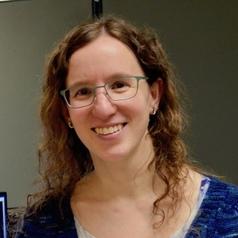
Miriam Freedman
Professor of Chemistry, Penn State
Miriam Freedman's research group studies phase transitions of aerosol particles, ice nucleation, and other topics at the interface of physical chemistry, surface science, and atmospheric chemistry. She began her independent career at the Pennsylvania State University in 2010, where she is currently a Professor. Previously, she received her BA from Swarthmore College, MS in Mathematics from the University of Minnesota, and her MS and PhD in Chemistry from the University of Chicago.
Less ![]()
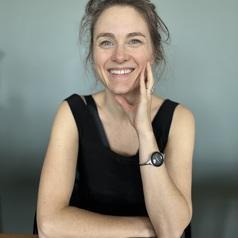
Miriam Mosing
Associate Professor of Behavior Genetics, Karolinska Institutet
Dr. Mosing's main research interest is how genes and environment play together to produce individual differences in quality of life throughout lifespan as well as in expertise. Why do some people fare better than others throughout life and in old age in terms of cognitive, mental and somatic health? Why are some people more successful and become experts in a given field? Understanding how genetic predispositions interplay with environmental factors will reveal the nature of phenotypic associations observed in daily life, which will not only allow us to identify truly causal and modifiable risk/protective factors (relevant environments), but will ultimately also help us to identify those who are at greatest risk or may benefit most from interventions.
Dr. Mosing is a behavioural geneticist who conducted her PhD research at the QIMR Berghofer Medical Research Institute and the University of Queensland, Australia. After completing her PhD, she held postdoc positions at the Neuroscience and the Medical Epidemiology and Biostatistics Departments at Karolinska Institutet in Stockholm, Sweden, before she became an Assistant Professor in 2016 and an Associate Professor (Docent) in 2020. In 2020, Dr. Mosing was awarded a prestigious DMR fellowship to relocate her research group from Karolinska Institutet to the University of Melbourne, Australia. Since mid 2021, she is permanently back in Europe and leads the Behavior Genetics Unit at the Max-Planck Institute for Empirical Aesthetics in Frankfurt, Germany, while also regularly spending time at her office at the Karolinska Institutet.
Less ![]()
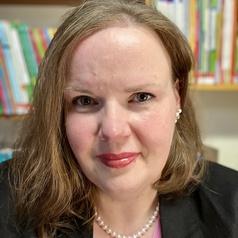
Miriam Neigert
Lecturer in German Studies, University of New England
Dr Neigert joined UNE in 2018 as a Lecturer and Discipline Convenor of German Studies. She completed her PhD thesis at Justus-Liebig Universität Gießen and Macquarie University Sydney (Cotutelle) on the topic of older language learners at community colleges in Germany. She is passionate about learning and teaching languages and has more than 15 years of teaching experience in a variety of adult and higher education contexts in both Germany and Australia. During her studies at Justus-Liebig Universität, she was part of an e-learning team creating digital language learning material in cooperation with the Goethe-Institut and teaching German online via chats, wikis and on SecondLife. Dr Neigert has taught a variety of lectures and seminars for teachers of TEFL/TESOL and trained teachers in the teaching and learning of German as a foreign language (DaF/DaZ).
Miriam’s research interests include motivation and the language learner self, age and language learning, using digital media in the foreign language classroom, and assessment for language learning.
Less ![]()
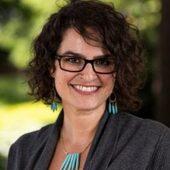
Miriam Eve Mora
Managing Director of the Raoul Wallenberg Institute, University of Michigan
Less ![]()
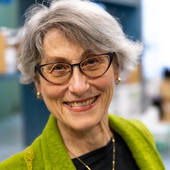
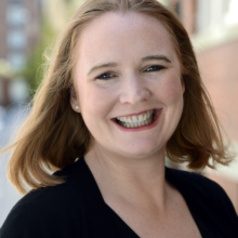
Miriam Nyhan Grey
Assistant Professor of History, Mary Immaculate College
Miriam joined the History faculty of Mary Immaculate College in 2024. Having completed her PhD in History at the European University Institute in Florence, she spent a decade and a half at New York University where she taught undergraduate and graduate courses and was Associate Director of NYU’s Glucksman Ireland House, Director of the MA in Irish Studies, NYU’s Global Coordinator for Irish Studies, Co-director of the Archives of Irish America Oral History Collection and both an advisory and editorial board member.A founding board member of the non-profit organisation African American Irish Diaspora Network, Miriam is also the originator of the innovative Black, Brown and Green Voices program which is an ongoing public humanities initiative with African American Irish Diaspora Network, New York Public Library Schomburg Center for Research in Black Culture, NYU and the Department of Foreign Affairs. She was the inaugural Associate Editor of the NYU Press Glucksman Irish Diaspora Series and is a regular co-editor of the American Journal of Irish Studies. She is the author of 'Are You Still Below?' The Ford Marina Plant, Cork, 1917-1984 (Collins Press, 2007); the editor of Ireland's Allies: America and the 1916 Easter Rising (UCD Press, 2016) and the co-editor of Forged in America: How Irish-Jewish Encounters Shaped a Nation (NYU Press, 2023). She has extensive experience in public humanities both in the US and in Ireland and she has undertaken projects with the Royal Irish Academy, the National Archives (Ireland), the Department of Foreign Affairs, and the Department of Education. Her curatorial projects have been exhibited at the National Library of Ireland, the Linen Hall Library, NYU and the Consulate of Ireland (New York). From 2014 to 2023 she was host and producer of This Irish American Life, a weekly radio hour on public radio in New York City. She is a member of the Royal Irish Academy's Working Group on Culture and Heritage. Her current research agenda is animated by the intersections of race, ethnicity and imperial legacies in the Irish diasporic experience, with a special interest in the United States and the Caribbean.
Less ![]()

Mirjam Büdenbender
Mirjam Büdenbender is a doctoral candidate at KU Leuven. Her research is part of the ERC funded project on the ‘Real Estate/Financial Complex’, which investigates the linkages between real estate markets and financial practices in contemporary capitalist societies. Mirjam studies the case of Russia and Poland. In so doing, she explicitly addresses the relationship between real estate and modern financial practices as well as their differential construction in post-Soviet societies.
As part of this project, Mirjam spends several periods of field research in her respective case countries. In Moscow she works as a research intern at the Institute for Urban Economics. Her fieldwork includes interviewing academics and professionals in real estate and related sector, analysing newspapers, government and industry documents, and accessing locally produced secondary material.
Previously Mirjam completed a BA (First Class Honours) in International Relations and Development Studies at the University of Sussex (2011) and a Master (Distinction) in Political Economy at the University of Manchester (2012).
In her previous degrees Mirjam studied the political economy of finance and the financialisation of everyday life through the lenses of housing markets. Her bachelor dissertation investigated the financialisation of the residential housing market in post-Apartheid South Africa. Her master’s thesis explored the historical origins and subsequent failure of the housing market as a growth and welfare model in the UK.
Mirjam speaks German (native language), English (full professional proficiency), Russian (professional proficiency) and French (basic). She has training in NVivo, SPSS and elite interviewing.
Less ![]()
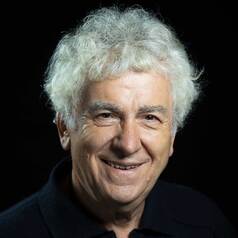
Miroslav Radman
Professeur, Inserm
Miroslav Radman is a French-Croatian geneticist and molecular biologist. He graduated in biology from the University of Zagreb, Croatia. In 1969, he received his PhD degree in molecular biology from the Free University of Brussels, Belgium. After working as a postdoctoral researcher with Raymond Devoret (1969-70) at the Centre national de la recherche scientifique (CNRS) at Gif-sur-Yvette, France, he joigned Matthew Meselson at Harvard University, Cambridge, MA, USA (1970-73). He is a former Professor of Molecular Genetics at the Free University of Brussels (1973-83) and Research Director at the French CNRS (Institute J. Monod, Paris, 1983-1997). In 1998, he became professor of Cell Biology at the Medical School of the René Descartes University (Paris-5) and director of the INSERM research Unit 571 "Evolutionary and Medical Molecular Genetics", from which he retired in 2013 as exceptional class professor emeritus.
Miroslav Radman is member of several international clubs and academies. He is also the founder of the Mediterranean Institute for Life Sciences (MedILS) in Split, Croatia. He is the founding member of four start-up biotech companies in the USA and France, and initiator and co-founder of the EITP (European Institute of Technology in Paris) project.
During his career, he has published over 200 research and review articles in the areas of DNA repair, DNA replication, mutagenesis, genetic recombination, evolution, microbiology, cancer research, protein oxidation and aging, that have been cited over 10.000 times. Additionally, he is the author of 2 books of scientific popularization about his recent work on the field of aging.
Three of his personal discoveries are present in standard molecular biology and genetics textbooks worldwide (the SOS response in bacteria; the discovery that the mismatch repair system acts as the genetic barrier between closely related species).
His paper on the molecular basis of extreme radiation and desiccation resistance in the most robust microbe Deinococcus radiodurans in Nature unravelled a 50 years old mystery and was commented in over thousand newspaper articles and TV news worldwide.
Less ![]()


Miryam Martinez Martinez
Profesora Adjunta Área de Comercialización e Investigación de Mercados, Universidad CEU San Pablo
Miryam Martinez es Profesora Adjunta del departamento de Economía de la Empresa de la Universidad CEU San Pablo. Es directora del Grado en Marketing de la Facultad de CC EE y EE.
Participa como ponente en diversos congresos y seminarios, así como en proyectos de investigación nacionales e internacionales, dentro de su línea de trabajo: Gender Gap.
Es autora de diversos artículos científicos publicados en revistas de reconocido prestigio internacional como: Sex Roles o Educational Management Administration & Leadership.
Less ![]()
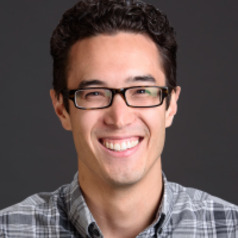
Misha Teramura
Assistant Professor of English, University of Toronto
Misha Teramura is Assistant Professor of English at the University of Toronto, where he researches and teaches the literature of the English Renaissance. His work has appeared in such journals as ELH, Shakespeare Quarterly, Modern Philology, English Literary Renaissance, RES, Early Theatre, and The Chaucer Review, as well as in the edited collections Lost Plays in Shakespeare’s England, Loss and the Literary Culture of Shakespeare’s Time, and Shakespeare/Text: Contemporary Readings in Textual Studies, Editing and Performance. He is currently working on two book projects, titled Paper Plays: The Material Lives of Early Modern Manuscript Playbooks and Reading Lost Plays: Early Modern Drama and the Forms of Textual Survival, and is editing Henry IV, Part 2 for the Arden Shakespeare Fourth Series. Other current research interests include textual scholarship, classical reception, and the circle of Henry Percy, ninth earl of Northumberland. He is also a co-editor of the Lost Plays Database (with Roslyn L. Knutson [emerita], David McInnis, and Matthew Steggle) and a Fellow of the Royal Historical Society.
Misha received his PhD in English from Harvard University after completing his undergraduate work at the University of Toronto. He taught at Reed College in Portland, OR for two years before returning to UofT.
Less ![]()

Mislav Radic
Assistant Professor, Department of Social and Political Sciences, Bocconi University
I am an Assistant Professor at Bocconi University, and a Research Fellow at University College London. My research and teaching lie at the intersection between Strategic Management and Public Policy. Prior to joining Bocconi, I was a Research Fellow at the London School of Economics and Political Science (LSE).
My most recent research agenda is focused on exploring the evolution, dynamics and challenges of voluntary carbon markets.
My research was published in academic journals such as the Journal of Management and the Oxford Research Encyclopedia of Psychology, and is frequently featured in prominent media outlets such as the Financial Times, the Guardian, and the BBC. I was the Principal Investigator on the UKRI funded project “Hybrid Organising in the Railway Sector”. In addition, I am a collaborator on Croatian Science Foundation funded project “Resilience Enhancing Policies: Exploring the Role of Public Grants” and on the British Academy funded project "The Great Post Office Scandal".
In addition to academic research, I act as a policy and strategy advisor for several private and public sector organizations, and serve as an active member of the World Economic Forum’s Global Shapers community.
Less ![]()
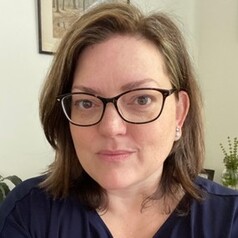
Mitchell Brown
Professor of Political Science, Auburn University
Mitchell Brown, Ph.D., is the Curtis O. Liles III Professor in the Department of Political Science at Auburn University and is a founding editor of the Journal of Election Administration Research & Practice. Her work as a researcher, evaluator, trainer and consultant focuses on applied projects around the country centering on election administration and community-based problem solving. She is the author of numerous books, research articles, and reports. Recent titles include How We Vote: Innovations in American Elections (with Kathleen Hale, Georgetown University Press) and the Elgar Publishing handbooks Teaching Undergraduate Political Methodology and Teaching Graduate Political Methodology (both with Shane Nordyke and Cameron Thies). From 2015-2018 she served as the Director of Auburn University PhD Program in Public Administration and Public Policy and currently co-directs the Election Administration Initiative with Kathleen Hale. She also serves as curricular faculty for the National Association of Election Officials and is a member of their board of directors. From 2016-2022 she served as the Science of Teaching & Learning section editor for the Journal of Political Science Education.
Brown is the recipient of the Meredith College 2023 Career Achievement Award; 2023 Distinguished Service Award from the Political Science Education Section of the American Political Science Association; the 2021 Glenn Howze Academic Freedom Award; 2016 & 2013 SGA Outstanding Faculty Awards for the College of Liberal Arts; the 2009 Distinguished Diversity Researcher Award through the Research Initiative for the Study of Diversity under the Office of the Vice President for Research at Auburn University; an Outstanding Service Award in 1998 from the Center for Mental Health Services (SAMHSA, NIH, DHHS) for her work developing a housing fidelity instrument; among others. Brown holds and has held board and leadership positions at the university, in state government, and in non-profit organizations.
Less ![]()
- Market Data























